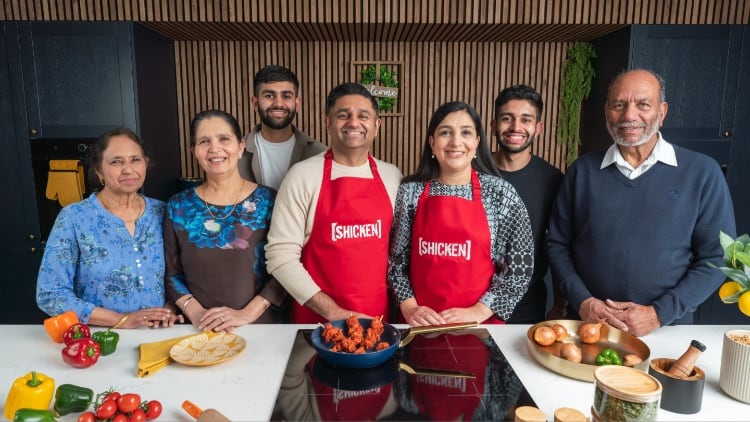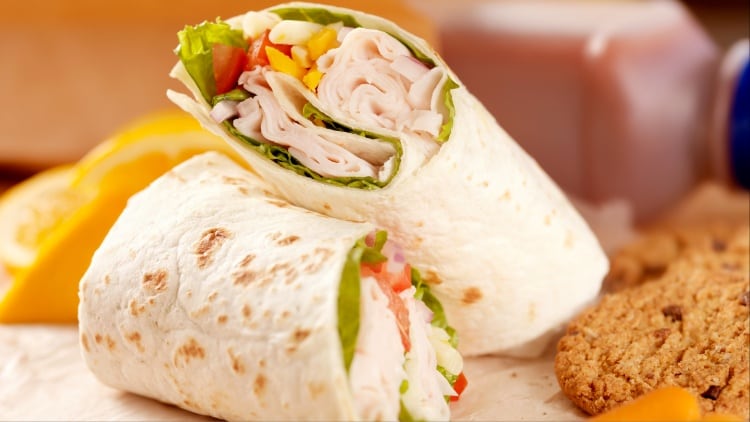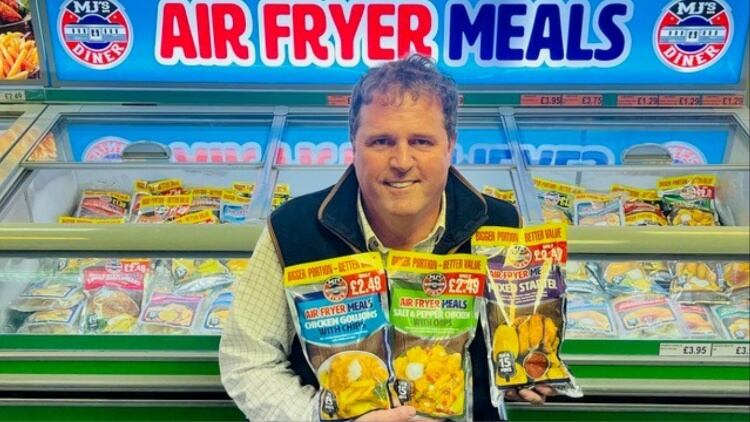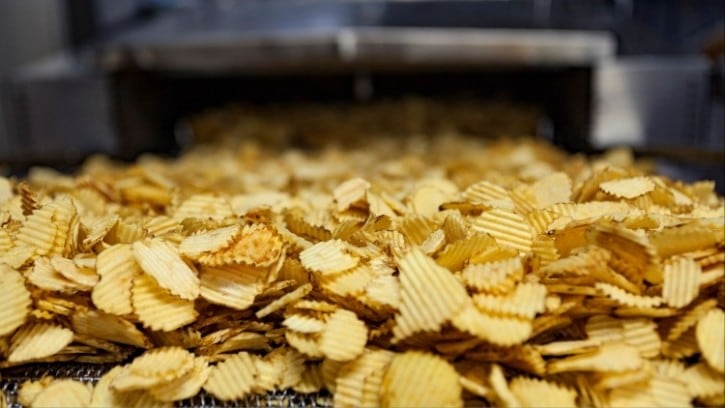Company: SHICKEN Foods Ltd
Address: Unit 4 Dartford Trading Estate, Victoria Road, Dartford, Kent, DA1 5XS
Number of employees: 20
Size of site: 18,000 square feet
Shift patterns: Single 12-hour shift, Monday to Friday
Output: Total available annual capacity 20,000MT, currently only using 15% of this total capacity
Types of lines: Five production lines including a kebab line, bulk line, SHICKEN pieces line, ready packing Line, Costco box packing line
Our food manufacturing journey started more than 20 years ago, but a number of different circumstances finally led us to establish SHICKEN during the Covid pandemic in 2020.
Satvinder and I have been vegetarians for over 30 years, but I first discovered the true potential of alternative proteins while travelling around Asia with my old job at Sony around the turn of the century.
During the trip my colleagues took me to a restaurant where I was amazed and inspired to see all these different plant-based proteins on the menu. I could not believe that the meal I was enjoying didn’t contain meat and it wasn’t long until I organised a trip to Asia to meet with the manufacturers that supplied this restaurant. Over the next two years we worked together to develop our own product and in 2003 we launched a plant-based chicken breast under the brand Love Foods.
Shortly after launching Love Foods, we secured a listing in Somerfield supermarkets in the UK, but when Somerfield was bought out by Co-op our contract was terminated. In response, Satvinder and I decided to pursue other opportunities, but retained ownership of the intellectual property for our alternative chicken protein.
In the interim period between losing the listing with Somerfield and founding SHICKEN, I worked for a multinational food manufacturer, enabling me to develop extensive commercial knowledge and build relationships across the industry in the UK, Ireland and across Europe. Meanwhile, Satvinder started a successful catering business that supplied traditional Punjabi cuisine to Indian functions and weddings throughout the UK, through which she developed a range of tasty recipes that utilised our plant-based chicken. This meant that when we decided to launch SHICKEN in 2020, we felt confident in our knowledge and experience to make the venture a success.
‘Building a state-of-the art manufacturing facility’
SHICKEN started as a lifestyle business, with myself and Satvinder creating homemade, restaurant quality plant-based curries and kebabs and selling them online via our e-commerce platform. This grew really quickly and in November 2021 we secured our first retail account with Costco which we serviced out of a smaller commercial kitchen. This led to us starting discussions with Matthew Glover, the founder of Veganuary and vegan investment fund Veg Capital, who wanted to help us scale. Looking at the potential of our listing with Costco in the UK and internationally, we eventually decided that we needed external financial backing and took on £2m in funding from Veg Capital in early 2022. This partnership has proved fruitful and we secured a further £4m investment from Veg Capital in March 2024.
Leaning on my contacts in the sector, I began investigating the possibility of working with a contract manufacturer, but was advised that due to the very high quality of our plant-based products, it would be better to manufacture everything in house. As a result, in October 2022 we used the funding from Veg Capital to start work on a state-of-the-art manufacturing facility in Dartford, Kent, possessing an annual production capacity of 20,000 tonnes. Production at the facility began in March 2023 and we now employ 12 manufacturing staff at the site, as well as eight people in the office.
More than 12 months on from opening this facility, we are set to grow our business 5 x fold. We are exporting to numerous countries including USA, France, Sweden, Iceland and Dubai, serving retailers and foodservice businesses alike. In the UK we supply the wholesaler Brakes, and our products are now available with several pub chains across the country. Looking ahead to Q4 of 2024, we are in discussions with four major retailers in the UK and we hope to have rolled out our products further in the US market too.
‘Plant-based category will mature’
While the business has grown quickly, we still see our chicken protein as the foundation of our offering, combined with authentic Asian cuisine. To date, our focus has been around Indian dishes, due to our background, but our range has since been developed to include a greater collection of different Asian cuisines. During the summer of 2023 we toured around Asia as a family to gain a deeper understanding of the various food cultures and learn about these authentic recipes. On our return, we used this knowledge and inspiration to launch our Pan-Asian range, starting with our Teriyaki Kebab Skewer, which we recently launched in Costco. Future innovation could include other meat alternatives such as duck or steak.
Possessing our own manufacturing facility also allows us to offer our proteins and recipes on a private label basis, which is where the vast majority of my experience within food manufacturing lies. For 20 years I was responsible for working on private labels products with all the major retailers, foodservice operators and producers, an education that has given me great insight into this world.
As a business we’re here for the long-term and keenly focused on pursuing long-term growth in a way for future family generations. Both of our kids have been involved with SHICKEN in some capacity alongside their studies and given the nature of the plant-based sector over the past few years, it is important for us to take this sustainable approach. We see the plant-based market as a marathon, not a sprint, and have already seen the category experience a consolidation process after the initial period of dramatic growth. There was so many new entrants in the market, which was unsustainable, but over the next two years I expect to see the category mature and quality of product become the primary area of focus.
‘Genuine long-term impact’
Vegetarianism has been part of our family for more than 30 years and we ultimately wanted to share the amazing recipes that Satvinder has created and continues to develop. We understand that in the short term, no one business can shift consumer behaviour dramatically, but if we can encourage more meat eaters to try our dishes and experiment more with plant-based products, maybe down the road we can have a genuine long-term impact on animal welfare and our environment.
Our dream is that once we decide to retire we can pass the business down to our kids. In that way we can leave a positive legacy of delivering tasty and affordable plant-based food, but also for creating a sustainable business model that can last the test of time in a tumultuous economic ecosystem.




